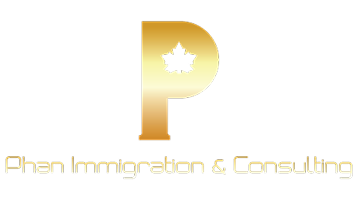Author: Yan Desjardins, Founder & Executive Director
The Federal Skilled Trades Program: The Overview.
The Skilled Trades program is one of the three programs available to immigrate to Canada under the skilled category of the Express Entry program. Read our blog on Express Entry for more information.
The Skilled Trades program requirements slightly differ from the Federal Skilled Workers program as it targets individuals with specific skill sets.
The Federal Skilled Trades program is designed to help immigrants with technical skills to immigrate to Canada through Express Entry. Skilled trades professions fall within the skill type B, of the National Occupation Classification (NOC). This means jobs that require technical or trades skills usually require a college education, specialized or apprenticeship training.
In this blog, we will look at some of the most questions asked in regards to the Federal Skilled Trades program:
- What are the minimum requirements to apply?
- What level of language proficiency do I need to qualify?
- What type of work experience can be eligible for this Entry Express program?
- Is there an education requirement for this program?
- How much money do I need to resettle?
What Are The Minimum Eligibility Requirements?
Similar to the other Express Entry programs, the Federal Skilled Trades program uses the same concept of minimum eligibility requirements. Therefore, applicants must meet the following minimum requirements to be eligible for permanent residence.
Language Proficiency: What Is The Required Benchmark?
There are 2 benchmarks that applicants must meet to qualify. They slightly differ from other Express Entry program permanent residence streams. However, these benchmarks are the lowest of all the permanent residence categories of the Express Entry program.
Applicants must submit a proof of language test taken within 2 years of the date of application for permanent residence. The benchmarks are as follow:
- For speaking and listening: the benchmark is 5.
- For reading and writing: the benchmark is 4.
The Federal Skilled Trades program is focused on the technical skills that applicants possess rather than higher general eligibility requirements like the other Express Entry programs.
Skilled Trades Work Experience
Applicants must possess at least 2 years of full-time work experience or an equivalent amount of part-time work experience within the 5 years before the date of their application for permanent residence.
Skilled trades occupations are organized under 4 major groups and 2 minor groups. For more information on the different groups and to assess whether or not your past work experience can qualify you for this Express Entry program, visit the National Occupational Classification website. The groups are as follows.
Employment under one of the following groups will qualify for your Express Entry score and your permanent residence application.
Major Group 72: this group includes industrial, electrical, and other construction trade professions;
Major Group 73: occupations relating to maintenance, machinery, and equipment operation trades;
Major Group 82: including professions such as supervisors and technical jobs in natural resources, agriculture, and other related production;
Major Group 92: processing, manufacturing, and utility supervisors and central control operators
Minor Group 632: for skilled chefs and cooks
Minor Group 633: including jobs such as butchers, meat cutters, and bakers.
It is essential for applicants to have gained work experience after qualifying to practice the profession in their country of residence. So, for example, a plumber would have to demonstrate that he is qualified to practice this profession.
Education
The Federal Skilled Trades program does not have an education requirement. Which means applicants from all educational backgrounds can apply as long as they meet the minimum eligibility requirements. As previously discussed, applicants may need to show accreditation, training, or skill certificate to prove they are authorized to perform the profession’s duties.
Suppose you have completed post-secondary or higher education previously. In that case, you can still use your higher credentials to gain more points in the Express Entry scoring system and receive an invitation to apply for permanent residence.
Resettlement Funds Requirements
The following must be met to satisfy the Government of Canada that applicants can effectively resettle to Canada and support themselves and their family members.
- Arranged employment: an offer of employment from a Canadian employer at the time of application and that must still be valid at the time of visa issuance;
Or,
- Resettlement funds: the applicants have sufficient funds to support themselves and their dependents in Canada for the first six months after they arrive.
The resettlement funds requirements are calculated based on the applicant’s family size. You must meet the funds’ requirements before applying for permanent residence, and you must maintain them throughout the application process.
So, if you are a skilled professional in one of the groups of professionals covered above, this immigration program is right for you! You and your family can be on your way to a new life in Canada by applying for the Federal Skilled Trades program.
Let Phan Immigration Immigration accompany you on your journey to Canada. Use our self-assessment tool to see if you qualify.







